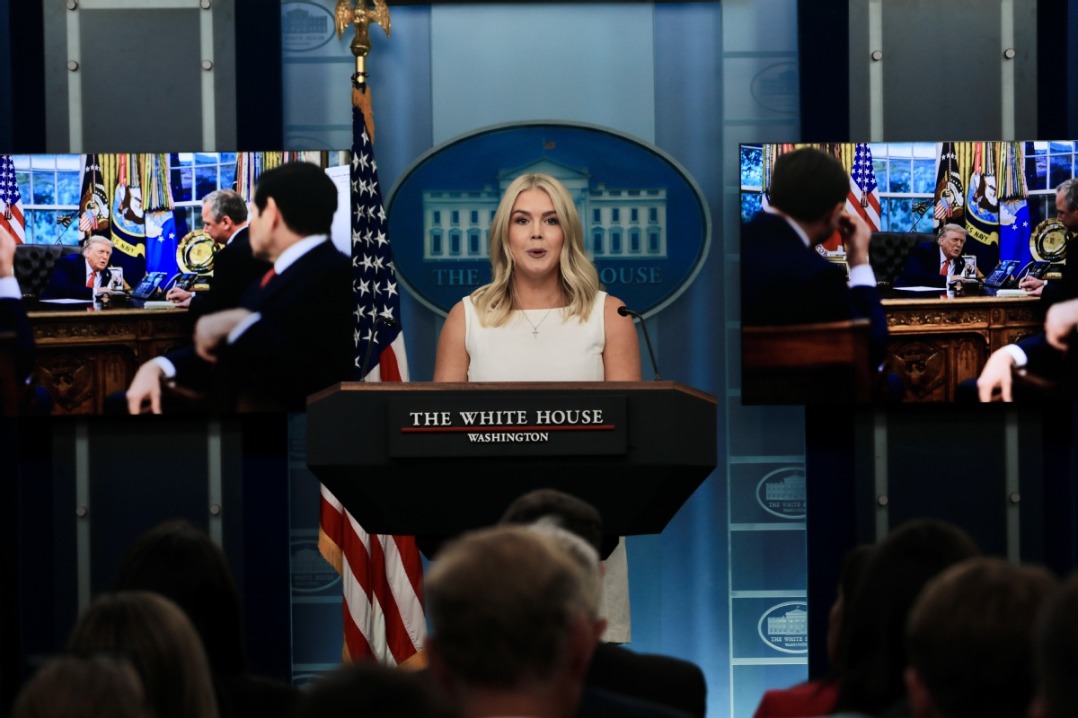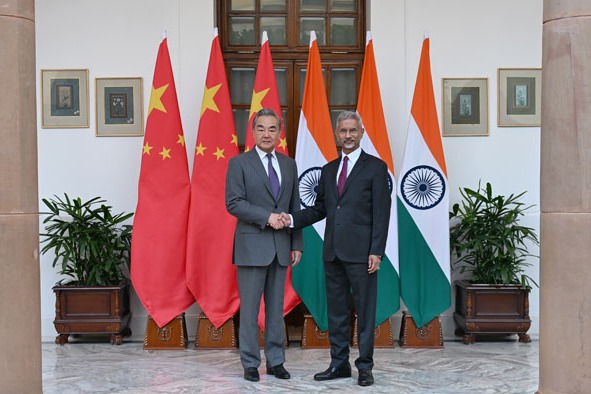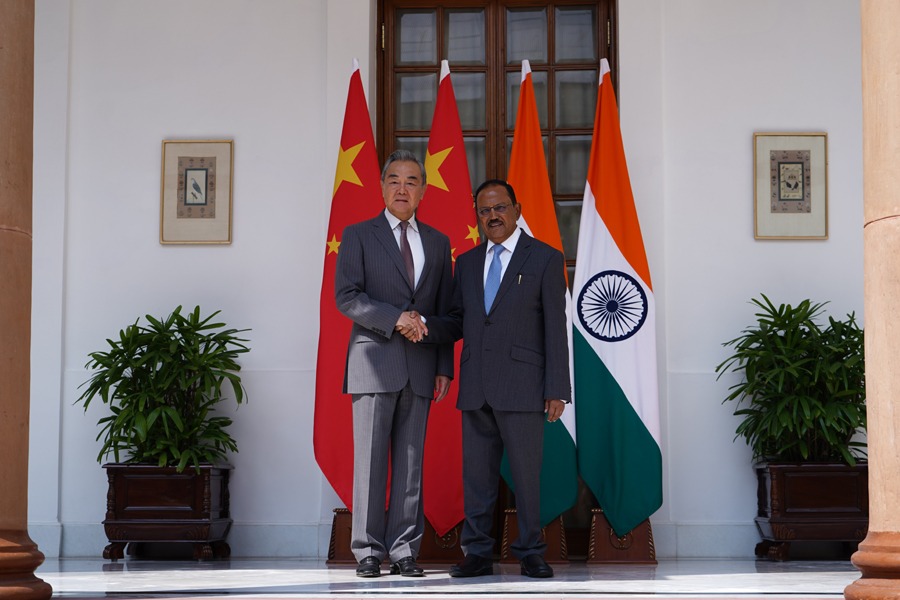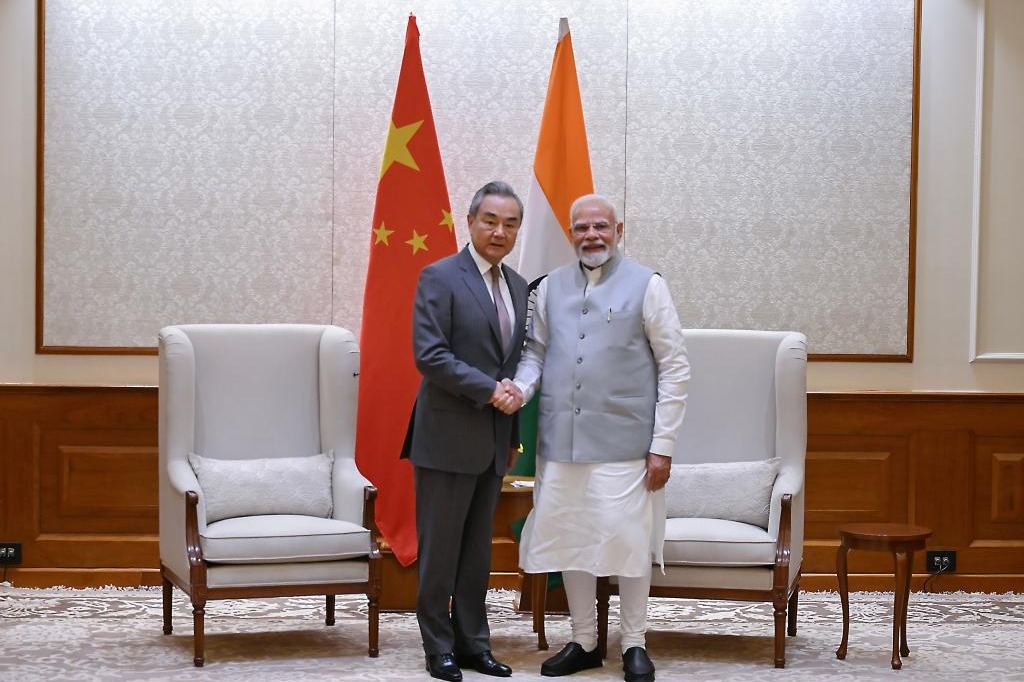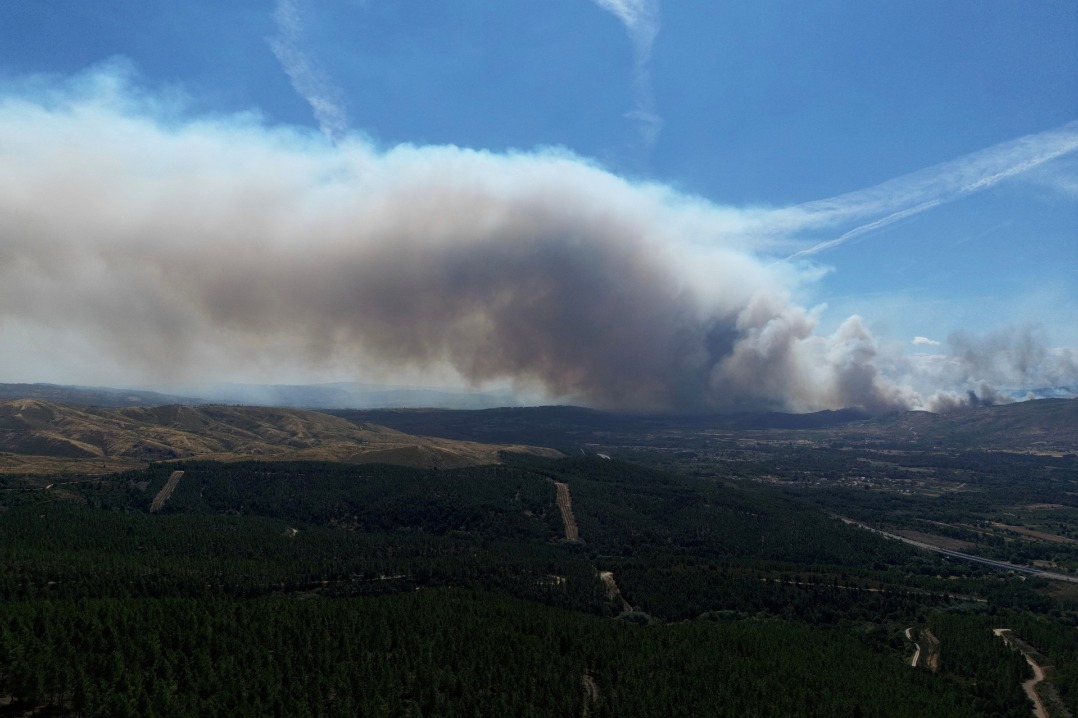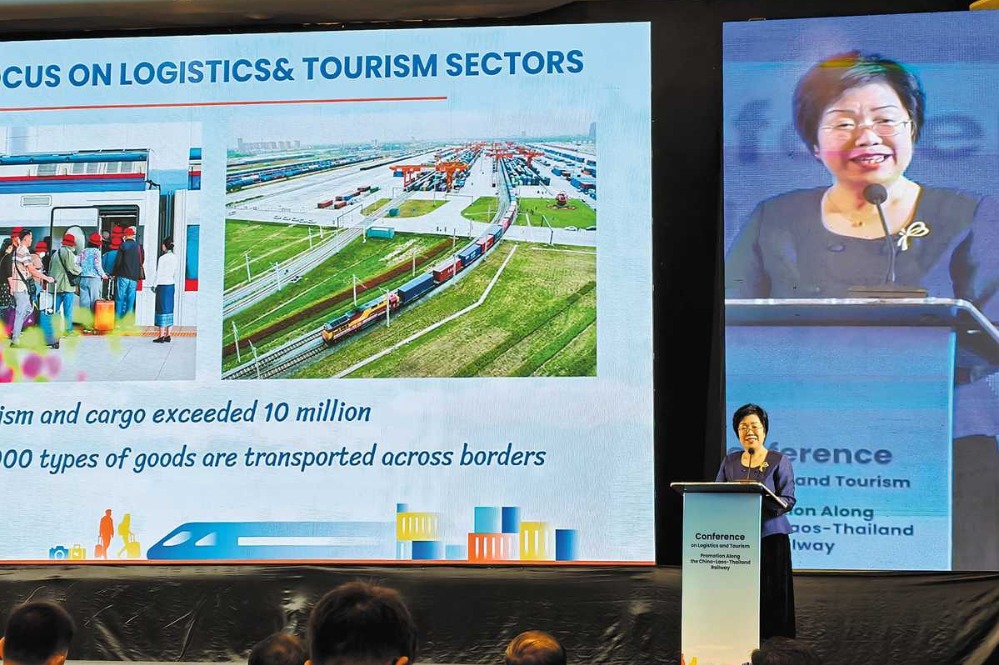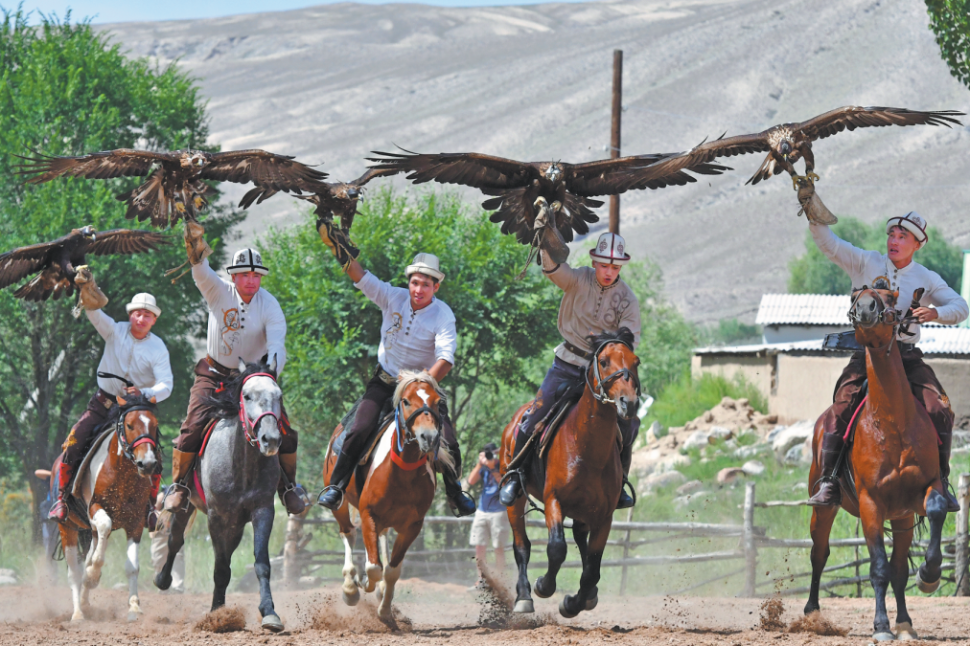Trump: US may assist Ukraine security

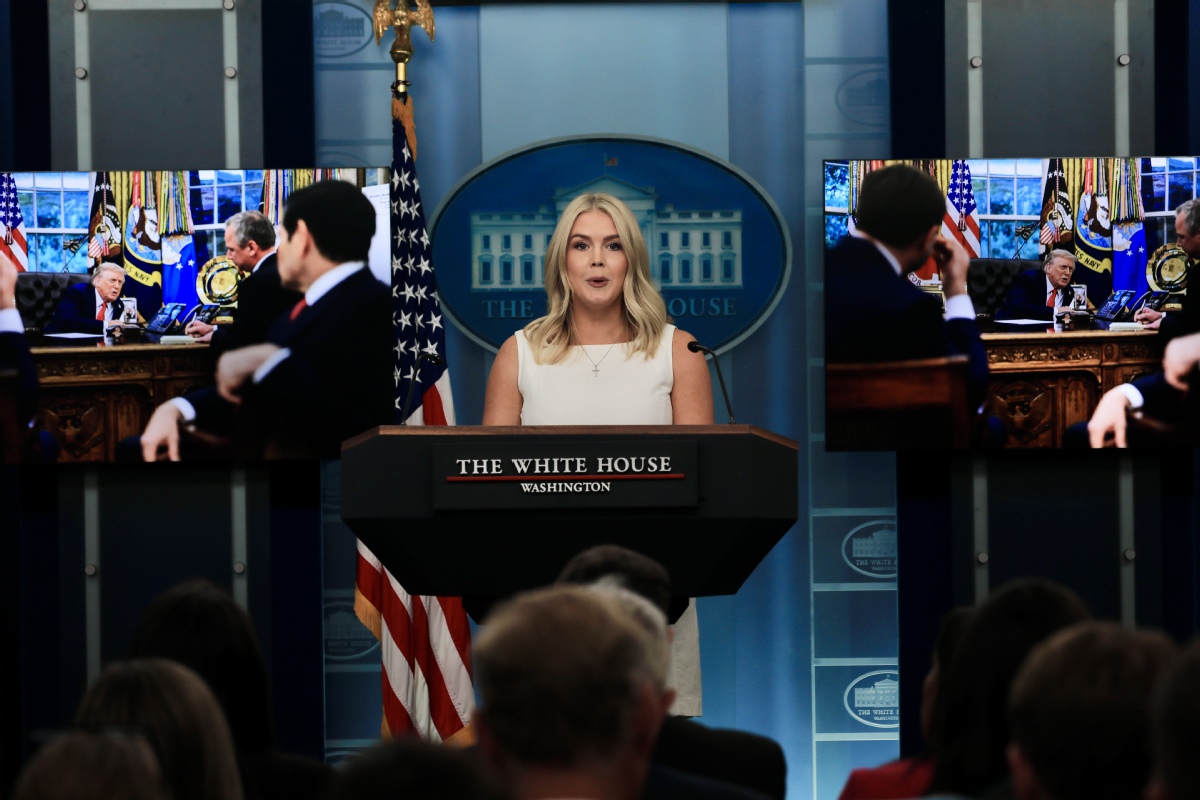
The White House said on Tuesday that US aircraft could be used to support security guarantees for Ukraine, while reaffirming that American troops will not be deployed on the ground.
In an interview following Monday's high-stakes talks with Ukrainian President Volodymyr Zelensky and seven European leaders at the White House, US President Donald Trump said "you have my assurance" that American troops would not be part of defending Ukraine's border.
"When it comes to security, (Europeans) are willing to put people on the ground. We're willing to help them with things, especially, probably ... by air," Trump said in a Fox News program on Tuesday.
At a White House briefing on Tuesday, Trump's Press Secretary Karoline Leavitt also said that Trump "has definitively stated that US boots will not be on the ground in Ukraine," but added that Washington "can certainly help in the coordination and perhaps provide other means of security guarantees" to its European allies.
Asked whether air support could be part of that, Leavitt replied: "It is an option and a possibility. I won't rule out anything as far as military options the president has at his disposal."
US Secretary of State Marco Rubio will lead a working group to draft a proposal for security guarantees for Ukraine, CNN reported on Tuesday, citing a White House official and another source familiar with the situation.
US and European military planners have begun exploring post-conflict security guarantees for Ukraine, US officials and sources told Reuters on Tuesday.
They cautioned that it would take time for them to determine what would be both militarily feasible and acceptable to the Kremlin.
Moscow has rejected the idea of European troop deployments in Ukraine as security guarantees.
On Monday, Russia's Foreign Ministry reiterated its "long-standing position of unequivocally rejecting any scenarios involving the deployment of NATO military contingents in Ukraine", noting that that risks "uncontrollable escalation with unpredictable consequences".
At Tuesday's briefing, Leavitt also said plans for a bilateral meeting between Russian President Vladimir Putin and Zelensky are now "underway", with "many options" being discussed, but the press secretary declined to answer questions about specific locations.
On Monday, Trump and Hungarian Prime Minister Viktor Orban discussed the capital Budapest as a potential host for future talks between Putin and Zelensky, a White House official told Reuters.
Leavitt said that Putin has already agreed to such a meeting. "I can assure you that the United States government and the Trump administration is working with Russia and Ukraine to make that bilateral happen," Leavitt said.
After Trump met Zelensky and European leaders on Monday, Leavitt confirmed the focus has now shifted from a possible trilateral format to a bilateral meeting between Zelensky and Putin.
Trump himself seemed to cast doubt on whether he would attend their meeting.
"I had a very successful meeting with President Zelensky and now I thought it would be better if they met without me, just to see — I want to see what goes on. You know, they had a hard relationship, very bad, very bad relationship," Trump said on The Mark Levin Show on Tuesday evening.
Leavitt also said Trump has proposed that NATO should take the lead in providing military support by buying US weapons.
"Back in January, he made it very clear that we're not going to continue writing blank checks to fund a war very far away, which is why he came up with a very creative solution to have NATO purchase American weaponry" to back the Ukrainian army.
NATO military leaders were expected to meet on Wednesday to discuss Ukraine, with US General Dan Caine, chairman of the Joint Chiefs of Staff, expected to attend virtually, Reuters reported.
Michael E. O'Hanlon, the director of research at the Brookings Institution's foreign policy program, noted that the obstacles to peace between Russia and Ukraine are daunting, and no one should expect major progress anytime soon.
"The two sides have completely different views on whether 'land swaps' are feasible, and if so, on what terms. The ways in which Europe and perhaps the United States and Canada could provide security reinforcers to Ukraine are completely undeveloped at present," he wrote in an analysis "The way forward for Ukraine after the Putin summit" posted on the Brookings website.
















